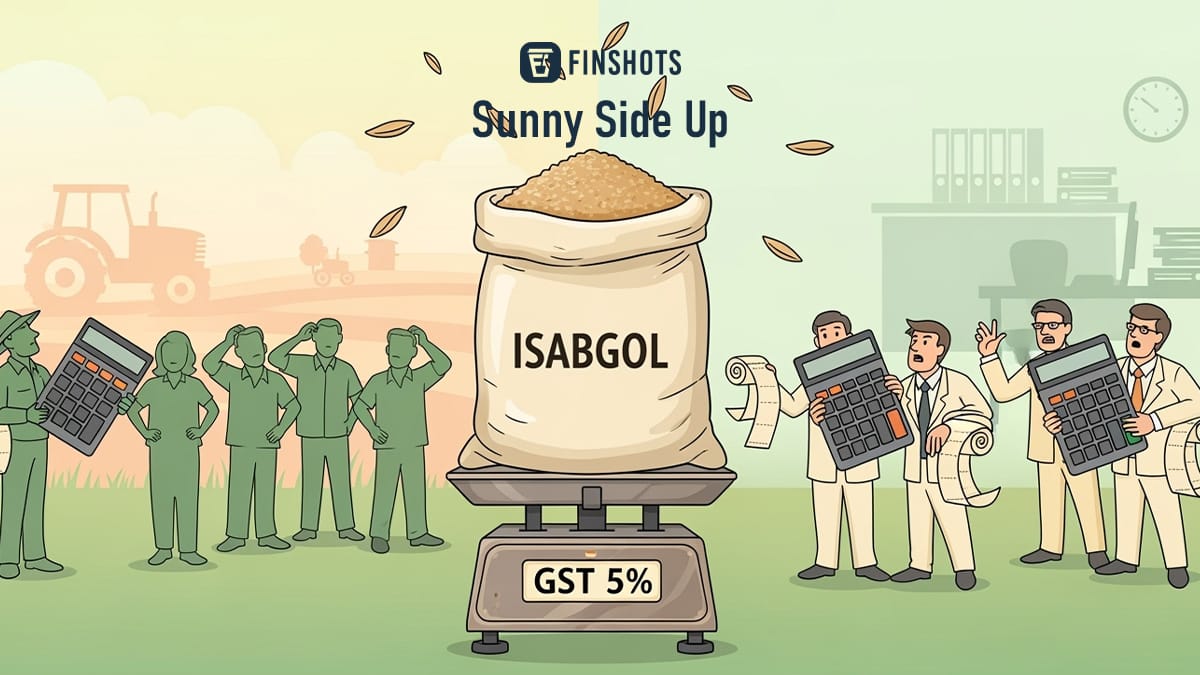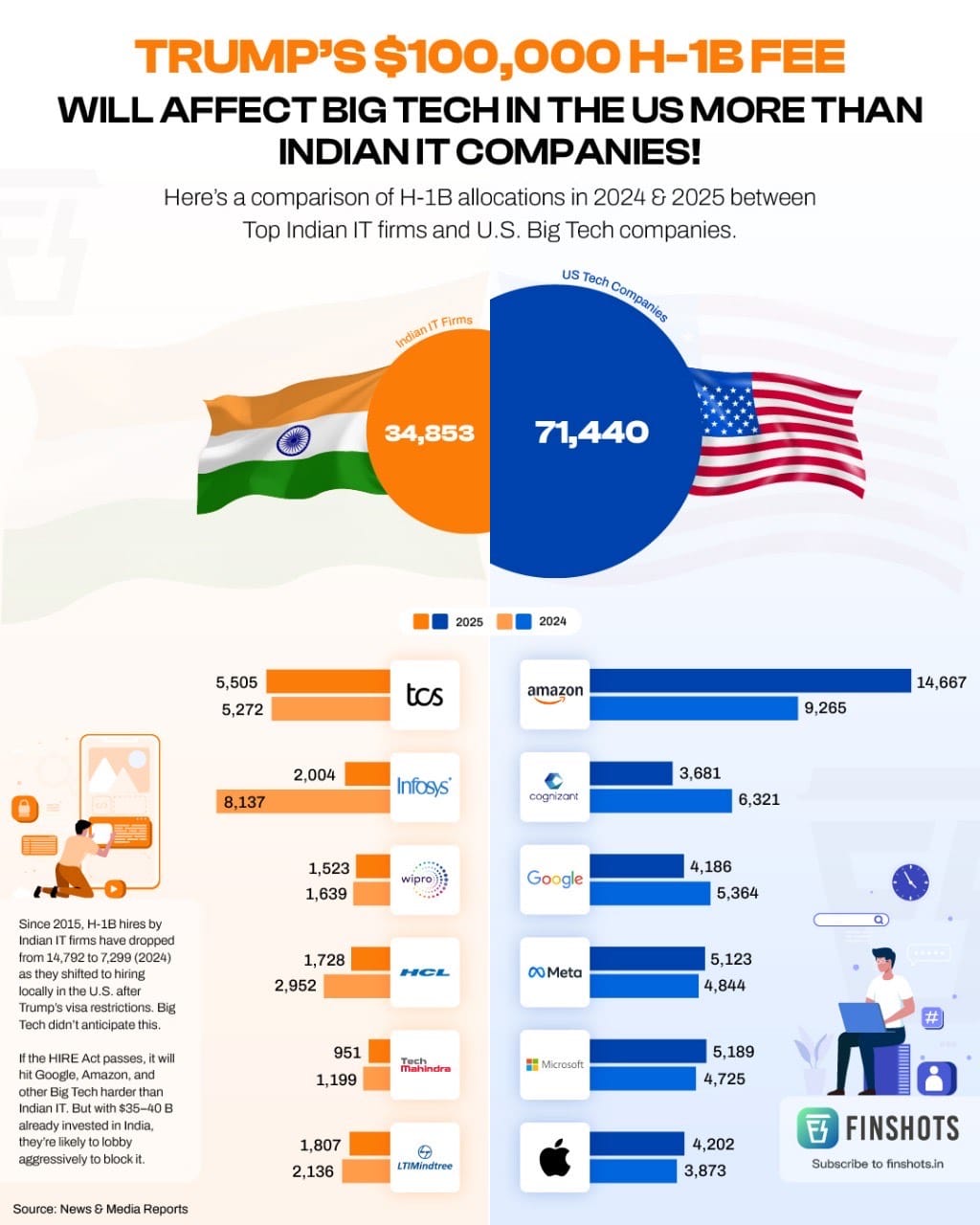🍳Isabgol problems, Fat Bear Week, and more...

Hey folks!
Every October in Alaska, the internet goes wild… because of bears. Yes, bears. And it’s all for the crown of biggest, fluffiest bear of the year.
Winter is coming, and these guys need to bulk up for months of hibernation. But humans turned it into a fun contest where anyone, anywhere, can vote for their favourite “hibernator”.
At Katmai National Park, the bear with the most votes wins Fat Bear Week. Over a million votes pour in from 100+ countries, all watching live on hidden bear cams.
What started in 2014 as a way to teach people about bears has now become a global online tradition. Ranger Mike Fitz remembers spotting a fan post two photos of the same bear — one in June and one in September. And the difference was jaw-dropping. Inspired, rangers hosted the first official Fat Bear Week in 2015. A decade later, it’s still going strong.
But Katmai isn’t just about the competition. The park is home to over 2,200 bears, more than anywhere else in the world, and it’s packed with sockeye salmon — the secret to these bears growing massive for the long winter ahead.
Now you might wonder why it’s a voting contest and not based on size or weight. Well… have you ever heard of anyone convincing a wild bear to step on a scale? Me neither. So yeah, until that happens, the voting is based on overall roundness and how well each bear has prepared for winter hibernation.
This year’s winner is aptly named Chunk. Despite a broken jaw, he gorged on salmon, bulked up to around 500 kg, and beat 11 other competitors by over 30,000 votes. Beary interesting, eh?
Here’s a soundtrack to put you in the mood 🎵
Soma by Iyer’s Filter Coffee
By the way, we’ve run out of your song suggestions, so we went ahead and picked one ourselves. But we love listening to your picks and sharing them with our readers. So don’t leave us hanging. Send more songs our way!
Now, let’s get cracking.
What caught our eye this week 👀
India’s Isabgol Problem
About 22% of adult Indians suffer from constipation.
Now, that’s not exactly the kind of stat you’d expect us to kick off a Sunny Side Up story with. But we had to, because the solution to India’s constipation problem is stuck in a problem of its own.
Here’s what we mean.
Just yesterday, isabgol processors threatened to stop buying isabgol seeds from farmers starting Monday (October 6th). The reason?
A messy GST confusion that’s been choking their business.
For context, India is the world’s largest producer of psyllium husk, or what we all know as isabgol. It’s basically a soluble fibre made from the seeds of plantago ovata, a herb that grows widely here. Farmers harvest the seeds, processors turn them into husk or powder, and voilà, you get that age-old remedy for digestive troubles.
Rajasthan grows nearly 70% of India’s isabgol crop, while 90% of the processing happens in Gujarat. But what’s even more interesting is that over 90% of this husk doesn’t even stay in India. It’s shipped off to the US, Europe, and Korea, where it’s in huge demand as a dietary fibre supplement and a medicinal laxative. And lately, it’s even caught the fancy of health-conscious youngsters abroad, who see it as a natural substitute (although unproven) for trendy weight loss drugs like Wegovy and Ozempic.
But here’s where the troubles begin. Before GST replaced VAT in 2017, isabgol was exempt from tax. But under GST, only fresh isabgol seeds were exempt. Dried seeds and husk, on the other hand, attracted a 5% levy. The problem though is that the law doesn’t clearly define what “fresh” actually means. And since processors typically buy through APMC markets (regulated marketplaces set up by state governments to ensure farmers get a fair price and aren’t exploited by middlemen) — where it’s tough to certify whether seeds are fresh or dried, they play it safe and just pay GST on everything.
Now, in theory, these GST payments get refunded later. But in practice, the refunds take ages. That means processors end up parking huge sums of money with tax authorities, when these funds could have otherwise kept their factories running smoothly. Add to this the pain of international tariffs that have already slowed export orders, and you can see why cash flow is giving them indigestion.
And that’s why processors are threatening to shut down purchases, which is a huge problem. Because if they don’t buy seeds, the whole chain collapses. Farmers lose buyers, processors won’t run plants, and export orders will decline further. That’s a big deal for a country that dominates the global isabgol market.
So yeah, until processors can “ease the constipation” of their blocked GST refunds, they don’t want to stock up on the very crop that has kept Indians… ahem… regular for decades. Now, it’s up to the government to prescribe the right medicine to fix this regulatory mess.
Infographic 📊

📺What if India abolished all taxes?

Imagine waking up in a tax-free India — no income tax, no GST, no nothing. Sounds like paradise, right?
But what would really happen if all taxes vanished overnight?
In this episode of Finshots TV, we break down the shocking reality of India’s taxation system: how much you truly pay, why the middle class bears the heaviest load, where your money actually goes, and the good and bad of what a tax-free India could look like. Click here to check it out.
Readers Recommend 🗒️
This week, our friend, Bhratesh Agrawal is back with another interesting book recommendation. He recommends reading House of Huawei by Eva Dou.
It’s the untold story of the mysterious family dynasty at the heart of one of China’s most powerful companies, Huawei.
Bhratesh says:
The story of Ren Zhengfei and Huawei exposes the human face of China’s modern security state and gets to the heart of the central questions of the US-China trade war: How did these fast-growing Chinese companies emerge? Who really controls them? And what does China’s expanding surveillance web mean for the Chinese people, and for the rest of the world?
Thanks for the rec, Bhratesh!
That’s it from us this week. We’ll see you next Sunday!
Until then, send us your book, music, business movies, documentaries or podcast recommendations. We’ll feature them in the newsletter! Also, don’t forget to tell us what you thought of today's edition. Just hit reply to this email (or if you’re reading this on the web, drop us a message at morning@finshots.in).
🖖🏽
Don’t forget to share this edition on WhatsApp, LinkedIn and X.
